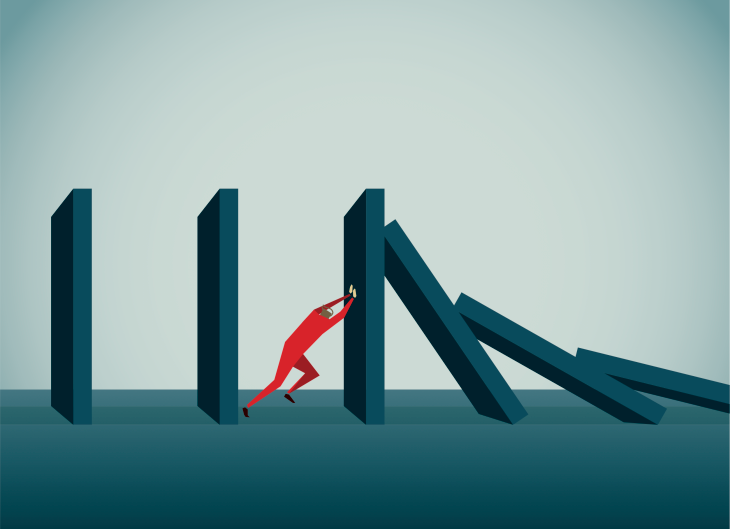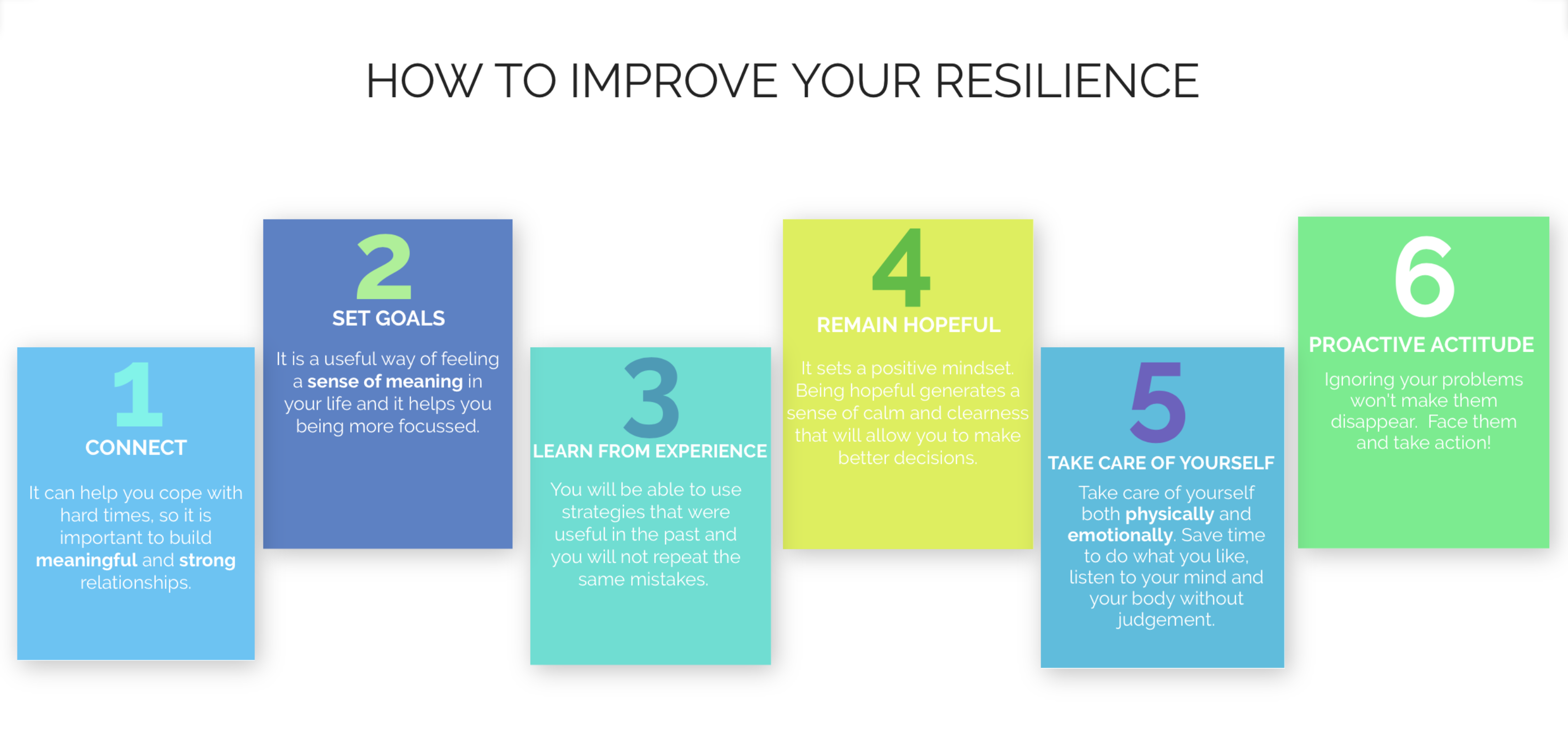
Resilience
What do you know about resilience? As you might have experienced, in life there are both good and bad times. We, as a society, are very conditioned by our beliefs and fears and, generally, flexibility isn’t our best asset. This lack of flexibility implies a huge limitation to our happiness. Expectations make us be slaves of our own insecurities and desires. Do we want to live like this? Isn’t it possible to develop a healthier mindset?
Through introspection and learning from experience we can be able to develop strategies which will allow us to be more resilient.

What is resilience?
Resilience is the capacity that enables us to recover from difficulties in a short period of time. It empowers people to accept and adapt to situations and move forward. The Global Center for Resiliency and Well-being states it is our ability to withstand adversity and bounce back and grow despite life’s downturns.
Resilience is a psychological tool we use to feel good after a difficult period or situation. Our levels of resiliency will change and develop throughout our lives.
Why is resilience important in life?
Resilience enables us to maintain balance in our life when coping with difficult situations or stressful periods. Also, it can help us prevent the development of certain mental health issues, which could easily evolve into physical pain.
Building resilience can seem difficult to achieve, but really, it isn’t. It just takes time and patience. Once you’ve learned how to take the first steps, you’ll see how you get better day by day.

Does resilience affect your health?
Obviously! A lack of resilience means that you are not able to cope with stress. This can lead to chronic stress which is associated with harmful health consequences such as high blood pressure, a weakened immune system, anxiety, depression, insomnia, heartburn, indigestion, and heart disease.
How can I make myself more resilient?
There are several tips that can help you become more resilient. However, you have to keep in mind that it isn’t a short journey. It requires patience and power of will in order to achieve it. Also, remember that in life there will always be ups and downs, so don’t obsess over being well all the time because it is not real nor possible.
Tips
Being connected can help you cope with hard times, so it is important to build meaningful and strong relationships. Also, setting goals every day is a useful way of feeling a sense of meaning in your life and it helps you being more focussed and making every day meaningful. Try learning from experience. It will enable you to use the mechanisms that were useful for you in the past in order to overcome a hard situation. Remain hopeful and set a positive mindset. Changing the past is impossible, but you are creating your present with every decision, be conscious about that. Take care of yourself both physically and emotionally. Save time to do what you like, listen to your mind and your body without judgement.
Finally, it can be useful for you to have a proactive attitude. Ignoring your problems won’t make them disappear. Only by facing what troubles you and moving towards a solution, can make you feel better and released. Take action!

Becoming resilient takes time and practice. If you don’t feel you’re getting better, consider contacting us for guidance. We will be happy to help!
